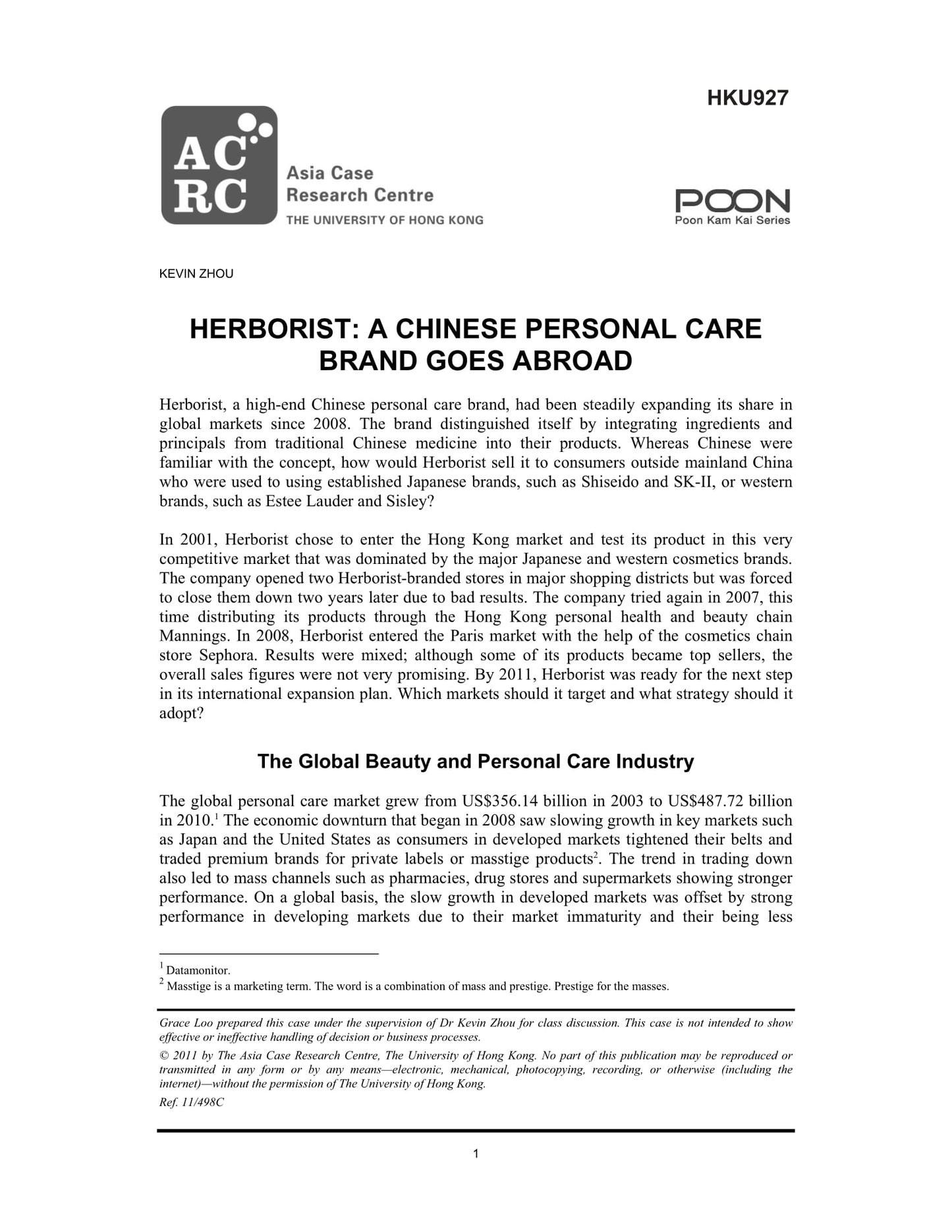Herborist: A Chinese Personal Care Brand Goes Abroad
受取状況を読み込めませんでした
Herborist, a high-end Chinese personal care brand, had been steadily expanding its share in global markets since 2008. The brand distinguished itself by integrating traditional Chinese medicine with modern biotechnology and emphasising its green and organic ingredients. Whereas Chinese were familiar with the concept, how would Herborist sell it to consumers outside mainland China who were used to using established Japanese brands, such as Shiseido and SK-II, or western brands, such as Estee Lauder and Sisley? In 2001, Herborist chose to enter the Hong Kong market and test its product in this very competitive market that was dominated by the major Japanese and western cosmetics brands. The company opened two Herborist-branded stores in major shopping centres but was forced to close them down two years later due to bad results. The company tried again in 2007, this time distributing its products through the Hong Kong personal health and beauty chain Mannings. In 2008, Herborist entered the Paris market with the help of the cosmetics chain store Sephora. Results were mixed; although some of its products became top sellers, the overall sales figures were not very promising. By 2011, Herborist was ready for the next step in its international expansion plan. Which markets should it target and what strategy should it adopt?
【書誌情報】
ページ数:24ページ
サイズ:A4
商品番号:HBSP-HKU927
発行日:2011/6/13
登録日:2011/9/14

